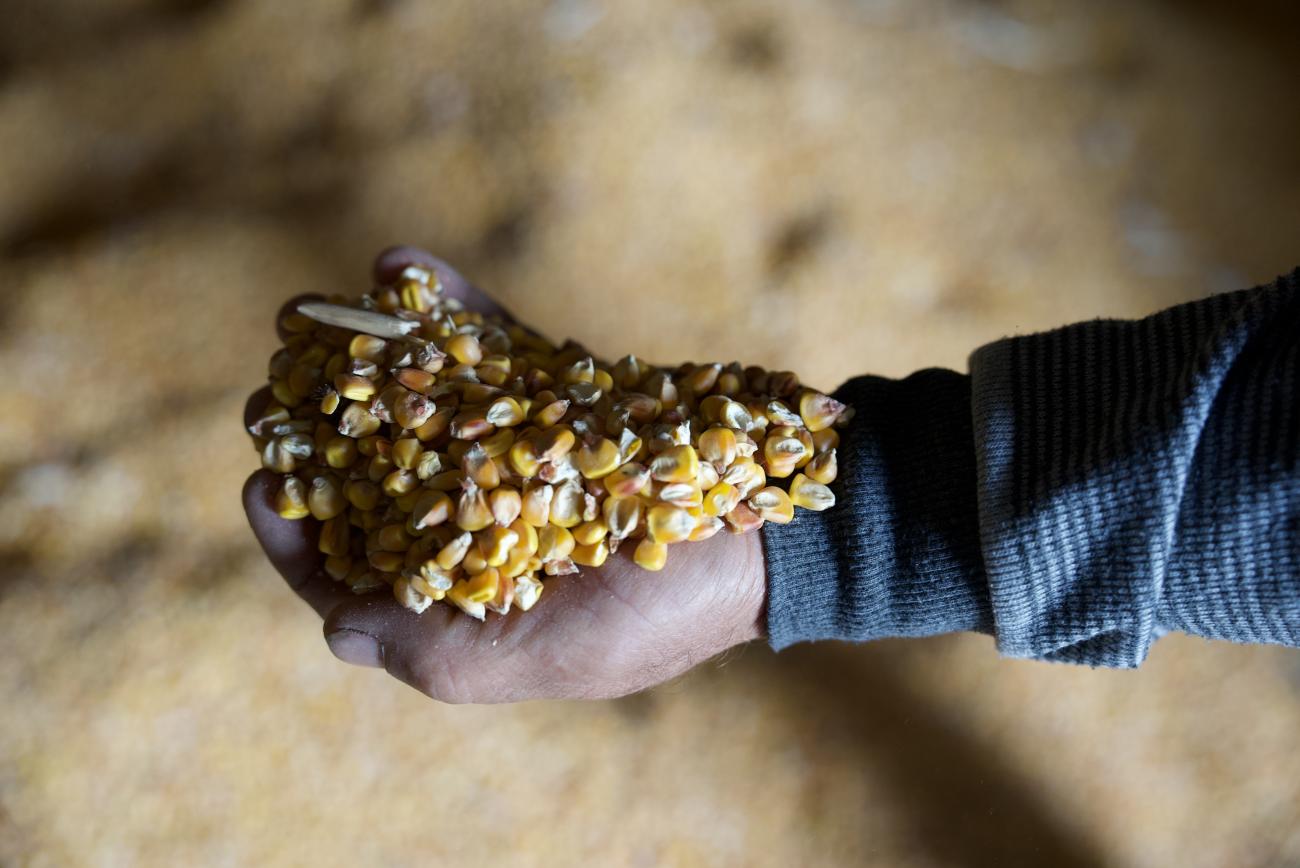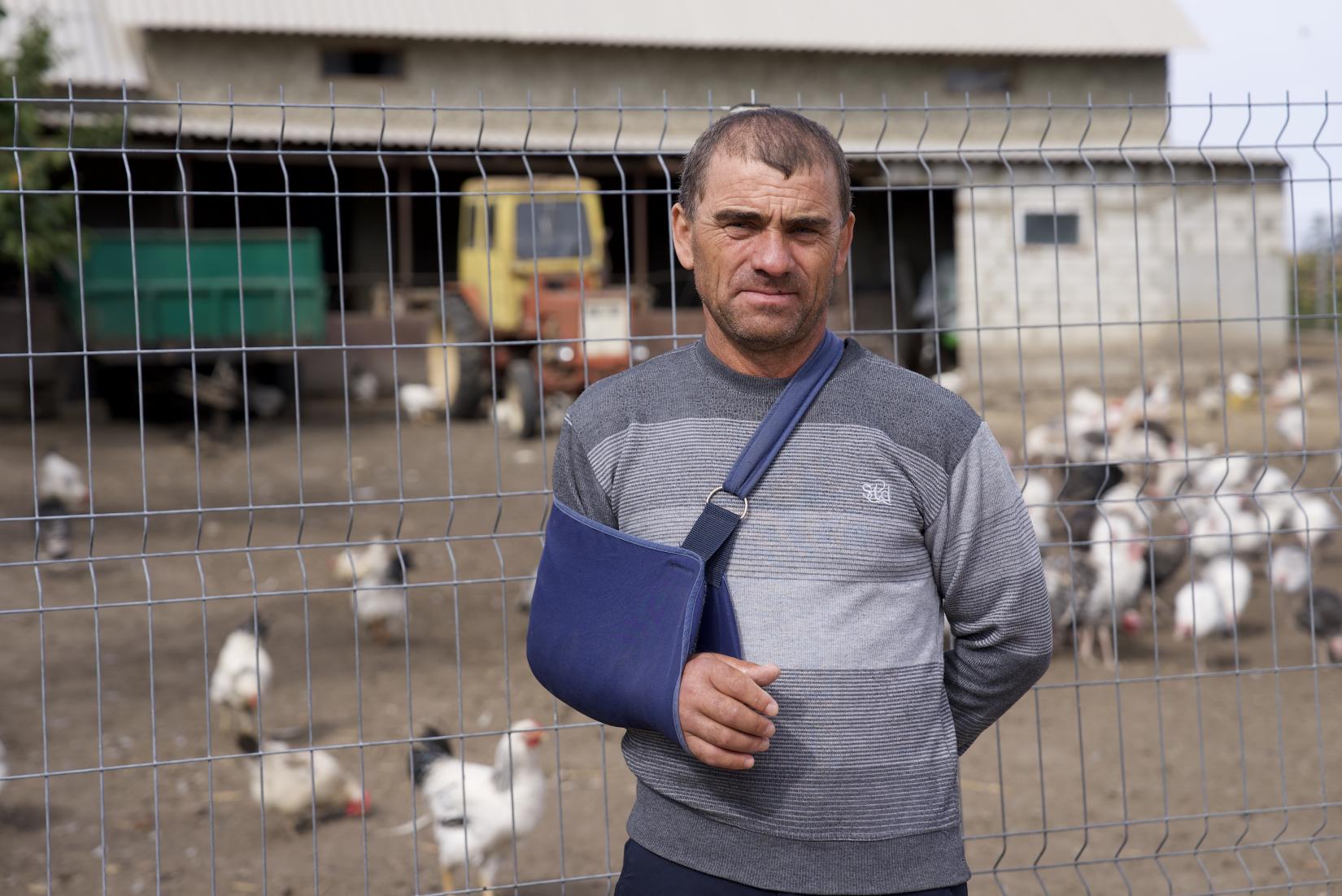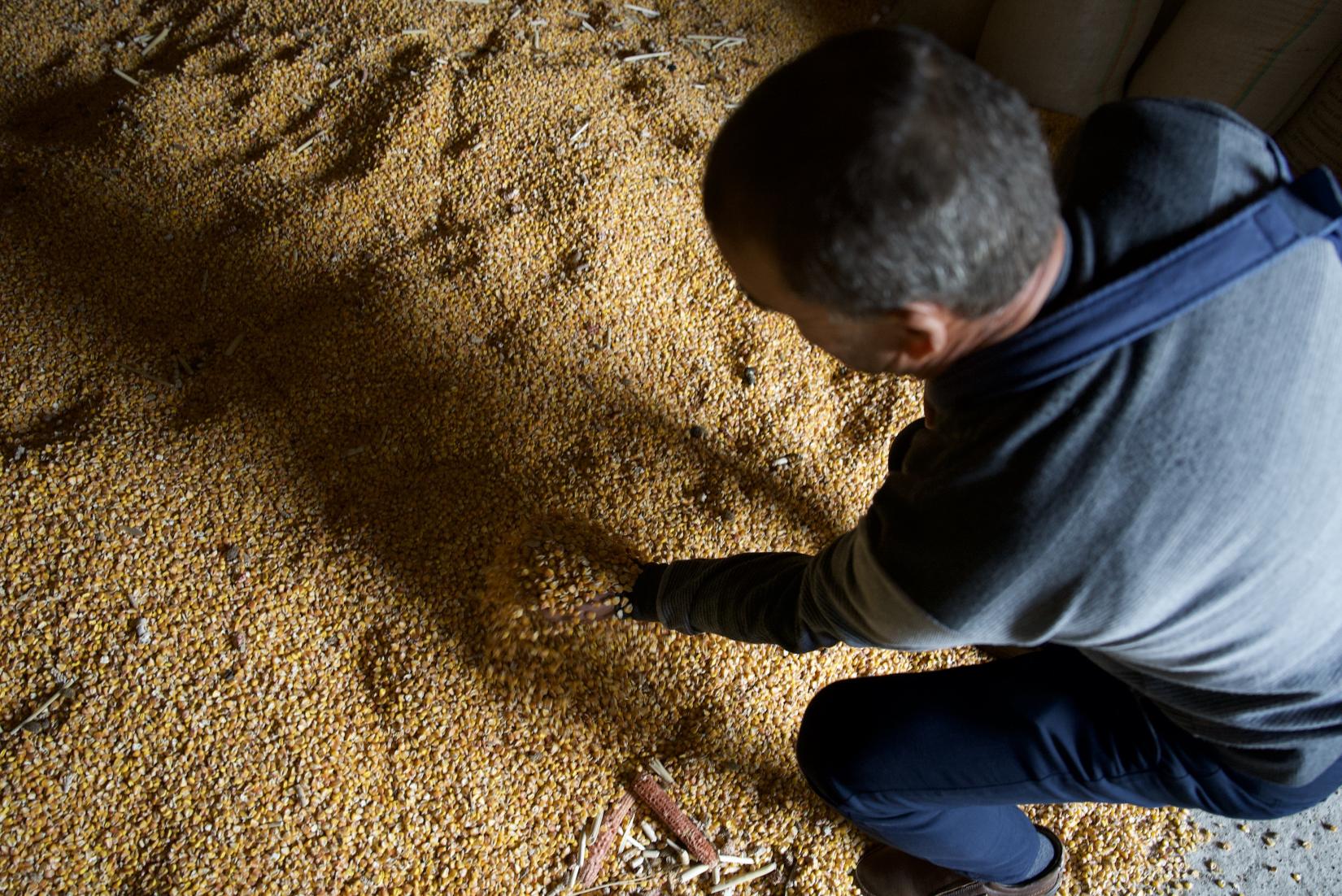Seeds and fertilizer bring relief to Moldovan farmers

Drought and cost spikes have been taking a toll on rural smallholders
The Republic of Moldova is at high risk of drought and extreme weather events, two challenges exacerbated by climate change.
Family farmers and others in the agriculture sector are the most vulnerable to the impacts of these extreme events. The severe drought in 2022, for example, was devastating for smallholder farmers.
Ion Portari, 49, is one of a dozen farmers who, together with his family, lives and works in and around the sparsely populated rural village of Lingura, in Cantemir, a southern district of the Republic of Moldova. For Ion, his wife and his family, making a decent livelihood from their five hectares of farmland has been increasingly difficult, compounded by unpredictable weather patterns attributed to climate change and the socioeconomic impact of the war in Ukraine. To run the farm and provide for their daily necessities, the Portari family relies on additional income sources. Ion works as the director of the Cultural Club in Crăciun, while his wife Victoria travels occasionally to Italy for employment opportunities.

In 2023, the Food and Agriculture Organization of the United Nations (FAO) distributed 30 tonnes of seeds and 60 tonnes of fertilizer to 1 224 small farmers in the Calarasi, Rascani and Cantemir districts. In the Lingura commune, FAO distributed 1 350 kg of fertilizer and 675 kg of seeds to 27 families.
FAO’s work in the area is part of a project aimed at providing emergency support for agricultural producers amid socioeconomic and energy crises. The project, implemented in collaboration with the United Nations Development Programme and financed by the Austrian Development Agency––the operational unit of Austrian Development Cooperation––will run through 2024.
Ion received 25 kg of drought-resistant maize seeds and enough fertilizer for his one-hectare plot, leading to a significantly improved harvest.
“We harvested approximately 800 kg of yield which was much better than in 2022, when we didn't even have anything to harvest,” Ion explained. “Another farmer who used traditional seeds and no fertilizers yeilded only 200–300 kg from one hectare – it’s such a loss after all the hard work and investment,” he added comparing his results with a neighboring farmer.
With his savings, Ion was able to hire additional help for the maize harvest. Farming livelihoods can be precarious, but when an extreme event like drought occurs, the impact can often lead emergency situations. As a result, the increasing costs of farming inputs make economics of agriculture challenging.

“The mathematics of agriculture is simple,” Ion said. “When you weigh the yield, you know if you have worked efficiently, and you can plan for the coming year. If there is no rain, no irrigation, and we have no resilience to climate changes or different extreme weather events, we are bound to fail. The expenses are very high: labor, fertilizers, wages – everything needs to be paid. Even smaller support from projects such as this one can significantly help us face these challenges.”
The past few years have been difficult, Ion observed.
“As farmers, we’ve have been hanging on these past two years only with passion and faith that it might get better, it might rain, we might manage,” Ion said. “Yet it’s getting riskier.”
Gunther Zimmer, head of the Austrian Development Agency’s office in Chisinau, emphasized the critical importance of the support provided for those most in need.
“In 2023, smallholder farmers in the Republic of Moldova received urgent and tailored support to mitigate the impacts of the war in Ukraine and last year’s drought,” he said. “I am grateful to our partners FAO and UNDP for making that happen. Together, we ensure that the most vulnerable people receive access to enhanced livelihood opportunities, decent work and productive employment.”
Switzerland joined the project at the end of 2023, offering USD 2 million in support through the Moldova 2030 Sustainable Development Goals Partnerships Trust Fund. This is on top of the USD 2 million already funded by Austria. The funding aims to improve the livelihoods of Ion and nearly 12 000 other farmers by boosting the sustainability of their farming production.
Under the direction of the Resident Coordinator Office in Moldova, UN agencies have joined their efforts to support the government and its citizens in facing the challenges ensuring that no one is left behind.





